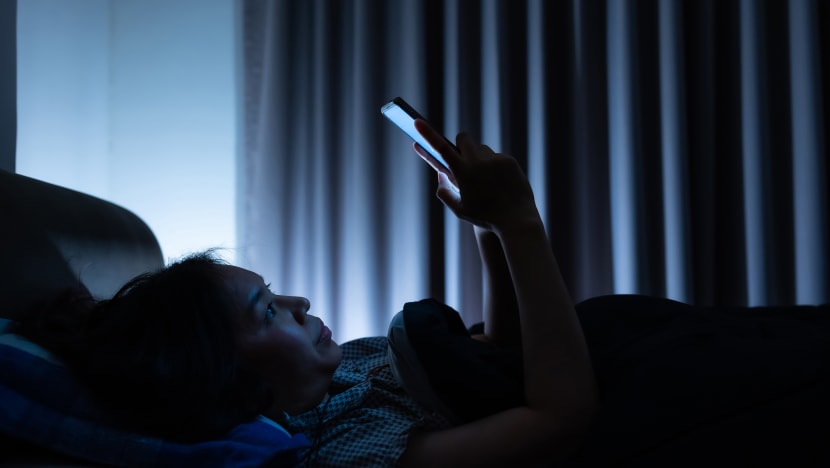Commentary: Having separate work and personal phones could be well worth the hassle
Our personal and professional lives have merged onto one phone, making it impossible to fully disconnect from either, says tech investor Gwendolyn Regina.


This audio is generated by an AI tool.
SINGAPORE: You're halfway through dinner and the phone buzzes. “Sorry, I’ve got a quick call,” you say, or perhaps you respond to the message so quickly you don’t even think of excusing yourself from the conversation.
Office workers close their laptops and teachers say goodbye to students, but our phones make us constantly available. And others have learned to expect it from us. What begins as a feeling of relevance soon wears thin: We’re needed, but at what cost?
Work communications have come into the spotlight recently. Australia became the latest country to give employees the legal “right to disconnect” and ignore their bosses outside working hours from August.
In Singapore, Minister for Education Chan Chun Sing recently set out boundaries for teachers - that they should not be expected to respond to work-related messages outside of school hours, nor to share their personal mobile numbers with parents. Teachers CNA spoke to said that a small number of unreasonable parents can be challenging to manage and that colleagues and school leaders are also guilty of sending late-night messages.
One notable detail was that a few of the teachers chose to get a separate work phone.
BLURRING OF PERSONAL AND PROFESSIONAL LIVES
Is creating physical boundaries by using two separate devices - one for work, the other for personal matters - the way to gain more control?
Changing the expectations of bosses, parents or other stakeholders is a work in progress. Deep work or flow gurus have also recommended using our phones’ “Do Not Disturb” modes and toggling settings to manage the barrage of notifications. However, these still only address part of the problem.
The other part of the problem is that we have merged our personal and professional lives into one device. Our discussions seamlessly glide between what to cook for dinner and the sales targets for this quarter, making it impossible to fully disconnect from either.
But setting physical boundaries is only the beginning. In our hyper-connected society, we have been conditioned to seek validation from others. And for many professionals, managers and executives, constant availability has been branded as a marker of importance or effectiveness.
About 89 per cent of the time, we’re picking up our phones not because of a notification, but to see if there is one, according to a small 2021 study by the London School of Economics and Political Science. It’s as though we’re searching for opportunities for validation.
This makes separate devices even more imperative, as a first step towards the second, more difficult, step of reprogramming mental boundaries. Compartmentalising our availability can slowly train us to let go of the need to respond to every notification, be constantly available, and to be validated by the demands of others.
NOT BEING CONSTANTLY AVAILABLE - COULD IT HURT OUR CAREER?
It’s natural to worry if not being constantly available could hurt our career, about losing deals or opportunities.
Most of the time, things are not as time-sensitive as we think they are. Unless your role specifically demands 24/7 availability, the need for constant responsiveness is often an illusion we create for ourselves.
For those concerned about potential losing contacts made through work, it has become easy to stay connected on professional platforms like LinkedIn. While message threads and context might be lost, relevant information (taking care to avoid proprietary or sensitive information) could be saved as notes or in the contact book.
Separate devices could, in fact, help us better focus on work when we need to, and to disconnect from work when we want to. Every interaction and notification has a time and place.
Every “urgent” text or email you reply to or notification you read chips away at your ability to focus. A 2005 University of California Irvine study suggested it takes 23 minutes to recover from a distraction, that’s hours of time spent daily recovering from distractions. A 2008 study by the same researcher indicated that people who are constantly interrupted end up working faster to compensate for lost time, at the cost of more stress and higher frustration.
SEPARATE WORK DEVICES AS COMPANY POLICY
Using two devices may require some adjustment and some reflection if it is worth the hassle and additional costs.
Employers should consider providing employees with separate work devices as standard practice as it significantly enhances privacy and security for everyone. It reduces the risk of accidental data breaches and misuse, or accidentally emailing your client a family photo, preserving your professional integrity.
For those whose companies do not have such a policy, the cost of postpaid data-only plans has fallen considerably and most of us will probably not need the latest expensive smartphone for responding to bosses and clients.
Ultimately, having a work phone could help us shift from being reactive to notifications and after-hours work communication to proactively managing our time and boundaries. That makes it a powerful investment for our future and well-being.
Gwendolyn Regina is a former start-up founder and experienced start-up investor.



















